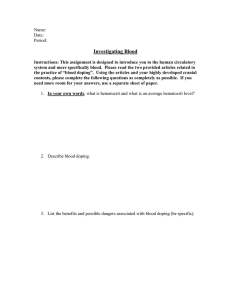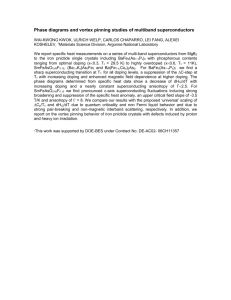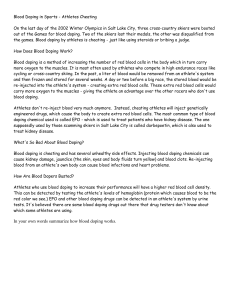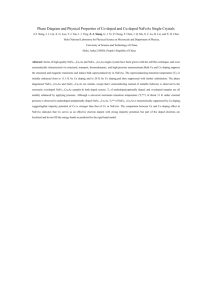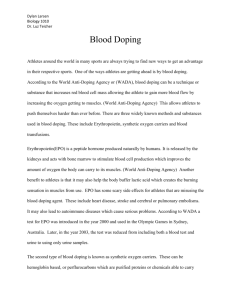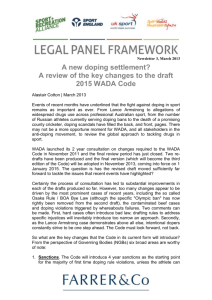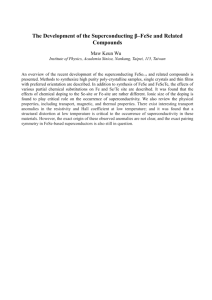Patrick J. Bird, Ph.D. Keeping Fit Column 659
advertisement
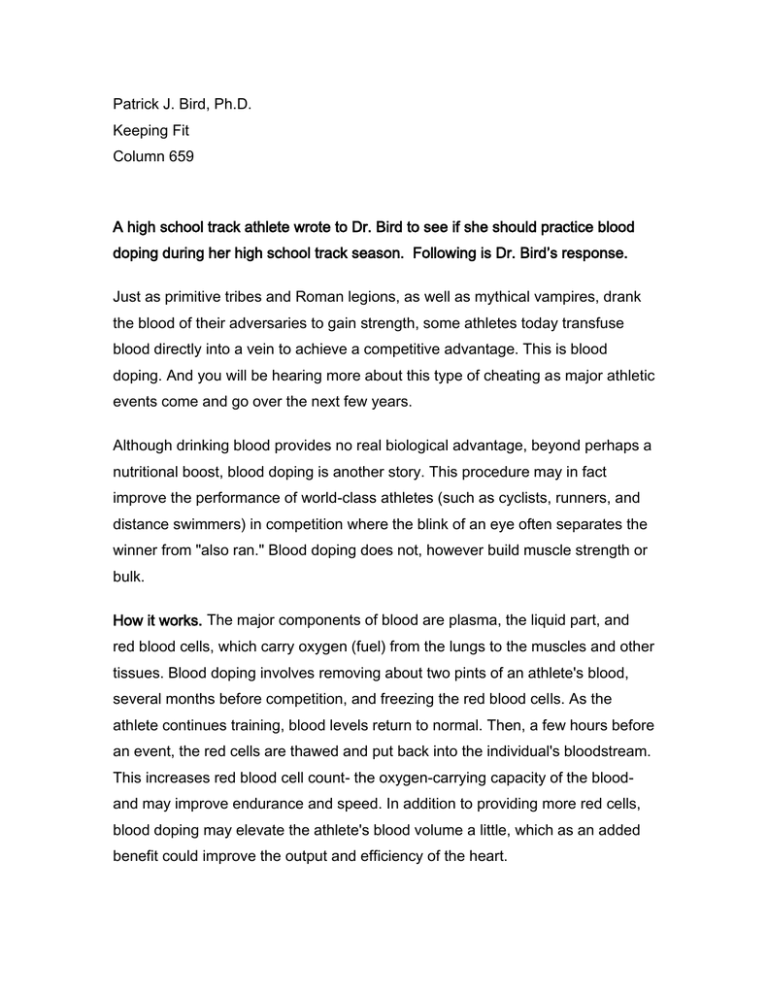
Patrick J. Bird, Ph.D. Keeping Fit Column 659 A high school track athlete wrote to Dr. Bird to see if she should practice blood doping during her high school track season. Following is Dr. Bird’s response. Just as primitive tribes and Roman legions, as well as mythical vampires, drank the blood of their adversaries to gain strength, some athletes today transfuse blood directly into a vein to achieve a competitive advantage. This is blood doping. And you will be hearing more about this type of cheating as major athletic events come and go over the next few years. Although drinking blood provides no real biological advantage, beyond perhaps a nutritional boost, blood doping is another story. This procedure may in fact improve the performance of world-class athletes (such as cyclists, runners, and distance swimmers) in competition where the blink of an eye often separates the winner from "also ran." Blood doping does not, however build muscle strength or bulk. How it works. The major components of blood are plasma, the liquid part, and red blood cells, which carry oxygen (fuel) from the lungs to the muscles and other tissues. Blood doping involves removing about two pints of an athlete's blood, several months before competition, and freezing the red blood cells. As the athlete continues training, blood levels return to normal. Then, a few hours before an event, the red cells are thawed and put back into the individual's bloodstream. This increases red blood cell count- the oxygen-carrying capacity of the bloodand may improve endurance and speed. In addition to providing more red cells, blood doping may elevate the athlete's blood volume a little, which as an added benefit could improve the output and efficiency of the heart. In the laboratory, blood doping has improved the time it takes an athlete to run to exhaustion on a treadmill. However, there is no clear evidence that the procedure is beneficial in actual competition. Still, many athletes say it helps, and simply believing this may provide a psychological advantage to the user. Although the reinfusion of an individual's own blood is relatively safe, there may be medical side effects resulting from an unsanitary procedure. Blood doping is considered unethical and banned by the International Olympic Committee, United States Olympic Committee and other sports organizations. But it is almost impossible to detect. Source: University of Florida: http://www.hhp.ufl.edu/faculty/pbird/keepingfit/ARTICLE/doping&EPO.HTM
